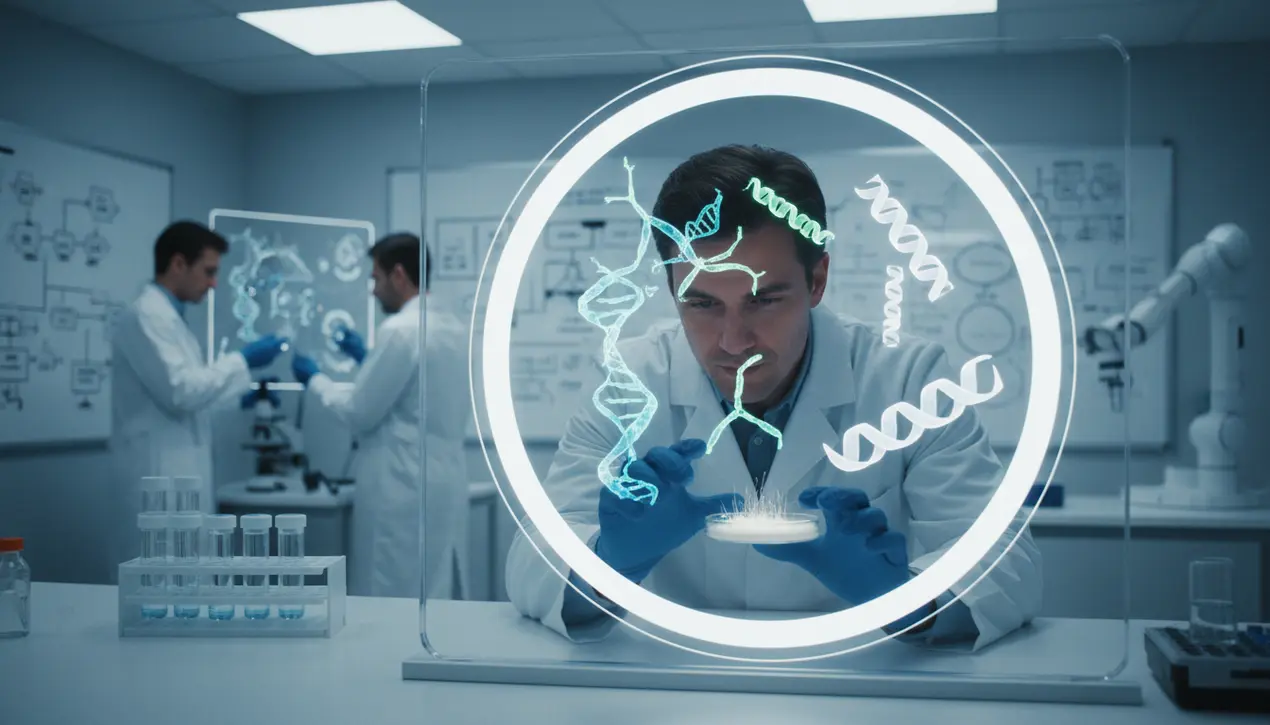
SciencebiologyGenetics
AI Trained on Bacterial Genomes Produces New Proteins
KE
Kevin White
13 hours ago7 min read4 comments
In a fascinating synthesis of computational power and biological design, researchers have successfully trained artificial intelligence on the vast libraries of bacterial genomes, resulting in the generation of entirely novel, functional proteins. This isn't merely pattern recognition; it's a fundamental leap in bio-engineering, leveraging the fact that genes with related functions naturally cluster together in bacterial DNA.The AI, having ingested this genomic logic, can now predict and assemble amino acid sequences that don't exist in nature but are structurally sound and biologically viable, effectively learning the hidden grammar of life itself. This breakthrough sits at the thrilling intersection of AI and synthetic biology, a field I've long been obsessed with, where tools like CRISPR are no longer just for editing but for writing entirely new chapters in the book of life.The methodology is as elegant as it is powerful. By analyzing the co-location of genes responsible for specific traits—say, heat resistance or toxin production—the model internalizes the complex, non-linear relationships between sequence, structure, and function.It’s like teaching an AI the principles of architectural engineering by showing it every skyscraper ever built; eventually, it can design a completely new, stable, and purposeful building on its own. This goes far beyond the brute-force screening of traditional protein design, which is often slow, expensive, and limited by our own imagination.The implications for the future of medicine are staggering. We're looking at a near-future pipeline for designing hyper-specific enzymes for drug synthesis, creating bespoke antibodies for targeted cancer therapies, or engineering novel biomaterials that can self-assemble for tissue regeneration.Imagine a world where we can computationally design a protein to neutralize a novel virus within days of its genome being sequenced, or create custom catalysts to break down plastic waste with unprecedented efficiency. This is the promise of next-gen science: moving from discovery to deliberate, intelligent creation.Of course, such profound power necessitates a parallel discussion on ethics and governance, echoing the early debates around gene editing. The ability to generate entirely new biological parts from scratch demands robust frameworks to prevent misuse, whether accidental or malicious.Yet, the potential for good is immense, representing a paradigm shift as significant as the discovery of the DNA double helix. We are no longer just readers of the genetic code; with AI as our co-pilot, we are becoming its authors, poised to script solutions to some of humanity's most persistent challenges in health, sustainability, and beyond.
#research & breakthroughs
#bacterial genomes
#protein design
#synthetic biology
#generative ai
#featured
Stay Informed. Act Smarter.
Get weekly highlights, major headlines, and expert insights — then put your knowledge to work in our live prediction markets.
Related News
Comments
Loading comments...
© 2025 Outpoll Service LTD. All rights reserved.